Many countries have travel restrictions in place in a bid to control the spread of COVID-19.
The latest big changes include:
-
More European countries are introducing ‘green passes’ to control who can enter indoor venues, such as restaurants. Full details here.
-
The EU Digital COVID Certificate is now being used across Europe (EUDCC).
-
Spain and Italy have been added to the UK’s ‘watch list’.
-
Australia is due to reopen for international travel.
-
This article is updated regularly.
Here’s a summary of the travel restrictions being enforced across Europe and beyond:
Albania
-
Measures to contain COVID-19 remain in effect, including midnight curfews and limited social gatherings.
-
All land borders are now open and there is no restricted movement around the country.
-
A negative PCR test and proof of vaccination taken less than 72 hours before arrival is required for all foreign nationals.
More information here.
Andorra
- Access to Andorra requires passing through either Spain or France, so check their travel restrictions too before planning your trip.
- Travel to and from the country is open, but masks are still required in indoor spaces. Andorra also asks that social distancing is respected.
- Travellers who intend to stay in Andorra for more than three nights need to present a negative PCR test result.
More information here.
Austria
- Austria is connected to the EU Digital COVID Certificate (EUDCC), which allows restriction free travel across all EU and EEA countries following proof of vaccination and a negative COVID test.
- It is also using the ‘green pass’ for access to public spaces.
- Hotels, restaurants, and leisure facilities are now open for tourists.
- Facemasks are still required on public transport.
More information here.
Belarus
-
All public spaces and tourist destinations are open with no restrictions in place.
-
All foreign arrivals must have proof of a negative PCR test issued no later than 72 hours before entry.
-
Masks are required in indoor spaces.
More information here.
Belgium
-
Connected to the EU Digital COVID Certificate (EUDCC), which allows restriction free travel across all EU and EEA countries following proof of vaccination and a negative COVID test.
-
Everyone entering the country must fill in a Passenger Locator Form (PLF) 48 hours before arrival.
-
Bars and restaurants in Belgium have reopened.
-
Fully vaccinated arrivals from outside of Europe need to take a PCR test and quarantine in Belgium until presented with a negative result.
-
Different PCR arrangements apply to arrivals from high risk areas, who are expected to quarantine for 10 days.
-
Children will be granted two free PCR tests to encourage family travel.
-
Masks are no longer required in outdoor spaces but remain compulsory in indoor spaces such shops and places of worship.
More information here.
Bosnia and Herzegovina
- Bosnia and Herzegovina are open to tourists as long as they can present a negative PCR result, issued no less than 48 hours before travel, or proof of vaccination.
-
Grocery stores, pharmacies, restaurants, and cafes are open, along with most other businesses.
-
People must wear masks in outdoor and indoor public spaces and on public transport.
The Bosnia and Herzegovina border police are publishing regular updates about foreign travel here.
Bulgaria
- Connected to the EU Digital COVID Certificate (EUDCC), which allows restriction free travel across all EU and EEA countries following proof of vaccination and a negative COVID test.
- Bulgaria is operating a colour coded system for international travel.
- A negative COVID-19 PCR test taken no more than 72 hours before travel is necessary for entry.
- There are no restrictions on travel between cities, and police-operated checkpoints have ceased. The leisure and entertainment sector is either on lockdown or operating at reduced capacity.
More information here.
Croatia
-
Connected to the EU Digital COVID Certificate (EUDCC), which allows restriction free travel across all EU and EEA countries following proof of vaccination and a negative COVID test.
-
All passengers coming from an EU/EEA country on the ‘green list’ are allowed into Croatia, as long as they can show a negative PCR test taken 48 hours before departing, or a vaccination certificate.
-
Failing to provide any of the above documents, travellers have the obligation to isolate themselves for 10 days on arrival in Croatia. this isolation can be shortened by obtaining a negative result in a PCR test or rapid antigenic carried out in Croatia.
-
The government are encouraging people to exercise caution after reports of a number of coronavirus cases associated with visits to bars and nightclubs.
More information here.
Cyprus
- Connected to the EU Digital COVID Certificate (EUDCC), which allows restriction-free travel across all EU and EEA countries following proof of vaccination and a negative COVID test.
- The country has a colour-coded system in place, with requirements for travellers depending on their location.
- Cyprus is also operating a ‘green pass’ to access public spaces.
- A Cyprus Flight Pass must be obtained by all arrivals, along with a negative PCR test for orange and red list arrivals.
More information here.
Czech Republic
- Connected to the EU Digital COVID Certificate (EUDCC), which allows restriction free travel across all EU and EEA countries following proof of vaccination and a negative COVID test.
- Travellers are also required to fill in the Passenger Locator Form and present it upon arrival.
- Czech Republic separates countries into five categories with varying entry requirements, the full lists are available here.
More information here.
Denmark
-
Connected to the EU Digital COVID Certificate (EUDCC), which allows restriction-free travel across all EU and EEA countries following proof of vaccination and a negative COVID test.
-
As of 10th September, Denmarks no longer considers COVID a ‘socially critical disease.’ They now consider it an ‘ordinary dangerous illness.’ They have consequently removed all domestic restrictions.
-
The only places masks are mandatory is at airports, and they are advised at the doctor, test centres and hospitals
More information here.
Estonia
- Connected to the EU Digital COVID Certificate (EUDCC), which allows restriction free travel across all EU and EEA countries following proof of vaccination and a negative COVID test.
- A 10-day quarantine period will be applied if you are arriving from an EU/EEA country with an infection rate higher than 150 cases per 100,000 of the population in the last 14 days.
- Travel documents and medical symptoms are checked at the borders.
More information here.
Finland
-
Connected to the EU Digital COVID Certificate (EUDCC), which allows restriction free travel across all EU and EEA countries following proof of vaccination and a negative COVID test.
-
Finland is open to fully vaccinated travellers and those who have recovered from COVID-19.
More information here.
France
- Connected to the EU Digital COVID Certificate (EUDCC), which allows restriction-free travel across all EU and EEA countries following proof of vaccination and a negative COVID test.
- France is operating a ‘green pass’ for entry into public spaces.
-
Fully-vaccinated visitors from the United Kingdom and the United States will still be required to produce a negative test result. But they will no longer have to quarantine and non-essential travel will now be allowed.
-
There is no longer a curfew and mask-wearing will not be compulsory outdoors “except in certain circumstances: when people gather together when they are in a crowded place, in a queue, on a market or in the stands of a stadium.”
More information here.
Germany
-
Connected to the EU Digital COVID Certificate (EUDCC), which allows restriction free travel across all EU and EEA countries following proof of vaccination and a negative COVID test.
-
Germany is operating a ‘green pass’ for entry into public spaces.
-
Travellers entering the country need to fill out a digital registration form before they travel and must have proof of a negative COVID test.
-
Arrivals from other “areas of variant of concern” are expected to head straight home to quarantine domestically for 14 days.
Find out more here.
Greece
-
Connected to the EU Digital COVID Certificate (EUDCC), which allows restriction-free travel across all EU and EEA countries following proof of vaccination and a negative COVID test.
-
Beaches are open but people must socially distance.
-
Curfews have been imposed across some of the Greek islands.
-
A PCR test, EU Digital Certificate, or proof of vaccination are required for almost all arrivals.
-
All arrivals must fill in a Passenger Locator Form.
More information here.
Hungary
-
Connected to the EU Digital COVID Certificate (EUDCC), which allows restriction free travel across all EU and EEA countries following proof of vaccination and a negative COVID test.
-
Social distancing and mask wearing are no longer being enforced.
-
Curfews are no longer in place. Shops and service providers are now open as normal.
More information here.
Iceland
- Connected to the EU Digital COVID Certificate (EUDCC), which allows restriction free travel across all EU and EEA countries following proof of vaccination and a negative COVID test.
More information here.
Ireland
-
Connected to the EU Digital COVID Certificate (EUDCC), which allows restriction-free travel across all EU and EEA countries following proof of vaccination and a negative COVID test.
-
Some passengers must complete a 14-day mandatory hotel quarantine if you have travelled from any country deemed high risk by the Irish government.
-
Travellers from lower-risk countries quarantining at home can take a free PCR test after 5 days. Quarantine can end if the result comes back negative.
-
Only people who are fully vaccinated, or who have proof of recovery from COVID-19 in the past six months, will be able to enjoy indoor hospitality.
-
People arriving in Ireland without evidence of a negative/‘not-detected’ test result will be committing an offence.
More information here.
Italy
-
Connected to the EU Digital COVID Certificate (EUDCC), which allows restriction-free travel across all EU and EEA countries following proof of vaccination and a negative COVID test.
-
A ‘green pass’ is required to enter most indoor venues. Full details here.
-
Italy has been added to the UK’s ‘watch list’.
-
The country is colour coded, with the majority in white zones, meaning outdoor dining is allowed and hotels are open.
-
Mask wearing remains compulsory in public places.
More information here.
Kosovo
- All but essential travel to and from Kosovo is generally advised against, and the government has announced strict temporary measures to control the virus.
- A negative PCR test less than 72 hours old is required by all foreign travellers entering Kosovo from countries with a high number of COVID-19 cases.
- These countries are marked as red or orange on the official ECDC map here.
Latvia
- Connected to the EU Digital COVID Certificate (EUDCC), which allows restriction-free travel across all EU and EEA countries following proof of vaccination and a negative COVID test.
- Latvia is operating a ‘green pass’ for access to public spaces.
-
Everyone who intends to enter Latvia is required to complete and submit an electronic form no earlier than 48 hours before entering Latvia.
-
Non-EUDCC arrivals must isolate for 10 days upon arrival in Latvia – even if you test negative.
-
All arrivals must show a negative PCR test performed no more than 72 hours before flying to be allowed to enter Latvia.
More information here.
Liechtenstein
-
Connected to the EU Digital COVID Certificate (EUDCC), which allows restriction-free travel across all EU and EEA countries following proof of vaccination and a negative COVID test.
-
Anybody travelling to Liechtenstein from a ‘high risk’ country must quarantine for 10 days upon arrival.
-
For the most part, the tourism industry is operating and the usual COVID-19 measures such as wearing face masks and social distancing apply in public spaces.
-
Liechtenstein follows Switzerland’s travel advice, so information about travel in either country can be found here.
Lithuania
-
Connected to the EU Digital COVID Certificate (EUDCC), which allows restriction-free travel across all EU and EEA countries following proof of vaccination and a negative COVID test.
-
Foreign nationals travelling to Lithuania must complete an online registration form no earlier than 24 hours before they begin their journey.
-
A 10 day quarantine is in place for non-EUDCC arrivals.
-
Borders remain open to EU and EEA citizens but movement within the country remains restricted.
-
Anyone arriving in Lithuania will need to present a negative PCR test no older than 48 hours or submit to being tested on arrival at the airport. All travellers are required to then quarantine for 10 days.
More information here.
Luxembourg
-
Connected to the EU Digital COVID Certificate (EUDCC), which allows restriction free travel across all EU and EEA countries following proof of vaccination and a negative COVID test.
-
Luxembourg is operating a ‘green pass’ for access to public spaces.
-
There is no requirement to quarantine when entering Luxembourg. However, if you do not have evidence of a negative test or submit to a rapid antigen test at the airport (which costs €10), you will need to self-isolate for 14 days or until you can show a negative test.
More information here.
North Macedonia
-
The borders are open in North Macedonia.
-
Bars, restaurants and cafes are open for business with social distancing and extra hygiene measures in place.
-
Other businesses including shops and hairdressers are open.
More information here.
Malta
- Connected to the EU Digital COVID Certificate (EUDCC), which allows restriction free travel across all EU and EEA countries following proof of vaccination and a negative COVID test.
- Malta is still operating by a traffic light system which will determine which restrictions you will be subject to when you arrive.
-
All arrivals from countries not on the green list will be required to present a negative PCR test no older than 72 hours. Failure to provide a test result may result in testing on arrival.
-
There is currently no requirement to quarantine.
-
Visitors from the UK to Malta who have not been fully vaccinated will have to quarantine for 14 days.
More information here.
Moldova
- Moldova is under a state of emergency until October 30. During this time bars, restaurants and cafes must close between 10 pm and 7 am.
-
Most hotels are open with no restrictive measures in place.
-
Public events with less than 50 people are allowed, but not near areas with a high risk of infection.
-
Regular updates on travel restrictions, which depend on where you’re travelling from, come from the border police website here.
Monaco
- Monaco is open for tourists and is following the EU traffic light system to determine restrictions for arrivals.
- Visitors have to present a negative PCR test no more than 72 hours before arrival. In the absence of a negative test, a quarantine will be enforced.
More information here.
Montenegro
- Evidence of a negative PCR test taken 72 hours prior to travel, proof of recovery from COVID-19 or proof of full vaccination with an EU approved vaccine is needed for entry into Montenegro.
- Arrivals to Montenegro with none of the above will need to isolate for 14 days.
- Shorter curfews are still being enforced.
More information here.
Netherlands
-
Connected to the EU Digital COVID Certificate (EUDCC), which allows restriction-free travel across all EU and EEA countries following proof of vaccination and a negative COVID test.
-
All arrivals must present a negative PCR test, no older than 72 hours and fill in a health declaration form.
-
Anyone arriving in the Netherlands from highly impacted areas is required to undergo 10 days self-quarantine.
-
No negative test or quarantine period is required for visitors arriving from “safe” countries across the EU, Asia, and Oceania. A full list can be found here.
More information here.
Norway
- Connected to the EU Digital COVID Certificate (EUDCC), which allows restriction free travel across all EU and EEA countries following proof of vaccination and a negative COVID test.
- All arrivals to Norway will need to provide evidence of a negative PCR test carried out 24 hours prior to travel.
- All travellers to Norway must also have filled out an online registration form prior to arrival.
More information here.
Poland
-
Connected to the EU Digital COVID Certificate (EUDCC), which allows restriction-free travel across all EU and EEA countries following proof of vaccination and a negative COVID test.
-
Borders are open to travellers from the majority of EU/EEA countries.
-
A traveller locator form is required if you travel by plane.
-
Poland now allows travellers with a COVID-19 vaccination certificate to enter without the need to quarantine, however all unvaccinated travellers from outside the Schengen area will have to isolate for 10 days.
More information here.
Portugal
-
Connected to the EU Digital COVID Certificate (EUDCC), which allows restriction-free travel across all EU and EEA countries following proof of vaccination and a negative COVID test.
-
Face masks must be worn in public and social distancing and extra hygiene measures are in force in all public settings.
-
Similar measures have been adopted in the archipelago regions of Azores and Madeira.
More information here.
Romania
-
Connected to the EU Digital COVID Certificate (EUDCC), which allows restriction-free travel across all EU and EEA countries following proof of vaccination and a negative COVID test.
-
Hotels, guesthouses and other tourist accommodation are open and subject to COVID-19 restrictions.
-
Museums, cultural sites and tourist attractions are open along with restaurants, cafes and clubs.
-
Locals and visitors must wear a mask when in indoor public spaces, as well as while in crowded outdoor gatherings.
More information here.
Russia
- Temporary restrictions on entry and exit via Russia’s borders were enforced at the end of March, they have since been reopened to the UK, Turkey, Finland and Serbia.
- All arrivals into Russia will be temperature checked and will be required to provide a negative PCR test result.
- Bars, restaurants and tourist attractions are now open.
More information about Russia’s COVID-19 response here.
San Marino
- Connected to the EU Digital COVID Certificate (EUDCC), which allows restriction-free travel across all EU and EEA countries following proof of vaccination and a negative COVID test.
- If you are accessing San Marino through Italy, you’ll need to check Italy’s travel advice before you set off.
- Restaurants, bars, cafes and other leisure facilities are open with social distancing measures and face mask requirements in place.
You can check the Re-open EU website for more information.
Serbia
- All arrivals to Serbia must provide a negative PCR test performed no more than 48 hours before departure to be allowed entry. You may also be subject to a 10-day quarantine.
- Restaurants, cafes and bars are allowed to serve customers in their outdoor spaces and indoors at reduced capacity.
More information here.
Slovakia
- Connected to the EU Digital COVID Certificate (EUDCC), which allows restriction free travel across all EU and EEA countries following proof of vaccination and a negative COVID test.
- Travellers will also need to register their arrival via an online form.
More information here.
Slovenia
- Connected to the EU Digital COVID Certificate (EUDCC), which allows restriction-free travel across all EU and EEA countries following proof of vaccination and a negative COVID test.
- A new list of red list countries has been announced as the country adopts a traffic light system. If you’re coming from a ‘red list’ country, you’ll be asked to quarantine for 10 days when you arrive.
- COVID-19 restrictions vary between municipalities.
More information here.
Spain
-
Connected to the EU Digital COVID Certificate (EUDCC), which allows restriction free travel across all EU and EEA countries following proof of vaccination and a negative COVID test.
-
Spain is currently on the UK’s ‘watch list’.
-
Antigen tests are now accepted instead of PCRs for travellers from countries on the list of risk zones – including France and Germany – while no tests are required for low-incidence areas.
-
Non-vaccinated UK travellers must show a PCR test upon arrival.
More information here.
Sweden
-
Connected to the EU Digital COVID Certificate (EUDCC), which allows restriction-free travel across all EU and EEA countries following proof of vaccination and a negative COVID test.
-
UK and non EU/EEA arrivals are no longer banned, with the exception of those who do not have proof of COVID-19 recovery, full vaccination or a negative PCR test from the previous 72 hours.
-
Those from outside the EU are not permitted to enter except for a limited number of countries including New Zealand. This is expected to last until October 31.
-
Most of the economy remains open with social distancing, face masks and extra hygiene measures in force.
More information here.
Switzerland
-
Connected to the EU Digital COVID Certificate (EUDCC), which allows restriction-free travel across all EU and EEA countries following proof of vaccination and a negative COVID test.
-
The usual requirements are in place, including a negative PCR test results and a completed online entry form.
-
Bars and restaurants have been allowed to reopen and cultural activities can resume.
-
Switzerland has a larger permitted list of countries than most European countries. It is updated regularly here.
More information here.
Turkey
- Most travellers to Turkey aged 6 years and above will be required to show a negative PCR test result before they can enter the country and may be subject to health screening when they arrive.
- Public and hospitality services are open.
- Outdoor mask-wearing is mandatory.
Turkish Airlines have published a country-by-country breakdown of flight restrictions to Turkey.
Ukraine
-
All visitors must have health insurance.
-
Entry restrictions depend on whether you’re travelling from a ‘green’ or ‘red’ zone country.
-
Ukraine is still operating a colour-coded regional system. Social distancing and indoor mask wearing are mandatory in all zones.
More information here.
United Kingdom
-
The UK has updated its travel restrictions to a traffic light system that includes green and red lists. More information here.
-
There are no longer any legal restrictions for international travel but people are strongly discouraged from travelling to countries on the red/amber list. More information here.
-
All arrivals into the UK must show a negative PCR test and fill in a passenger locator form. Those travelling from red list countries must also quarantine.
More information here.
Vatican City
- Vatican City has reopened its doors to tourists following the easing of Italy’s travel restrictions.
More information here.

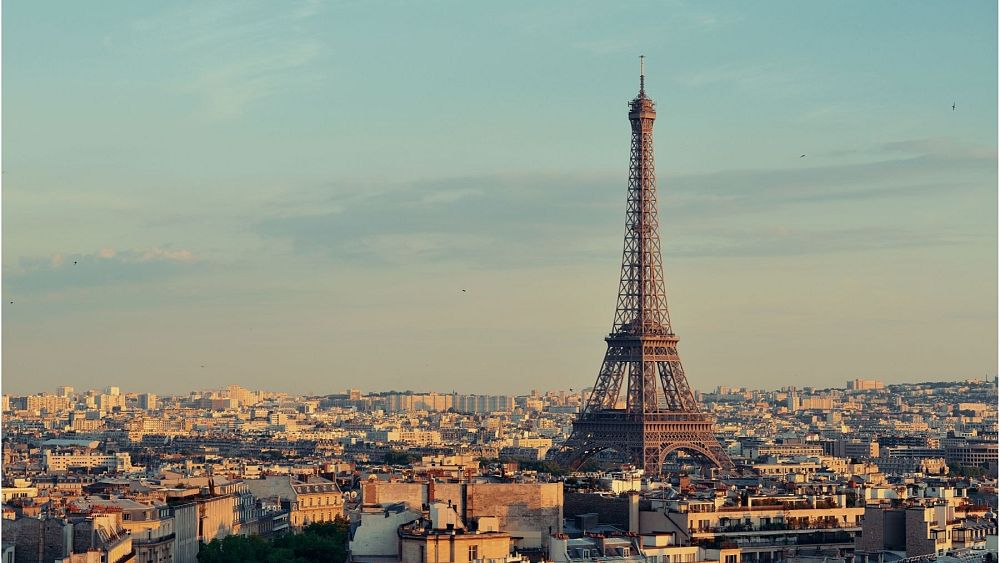
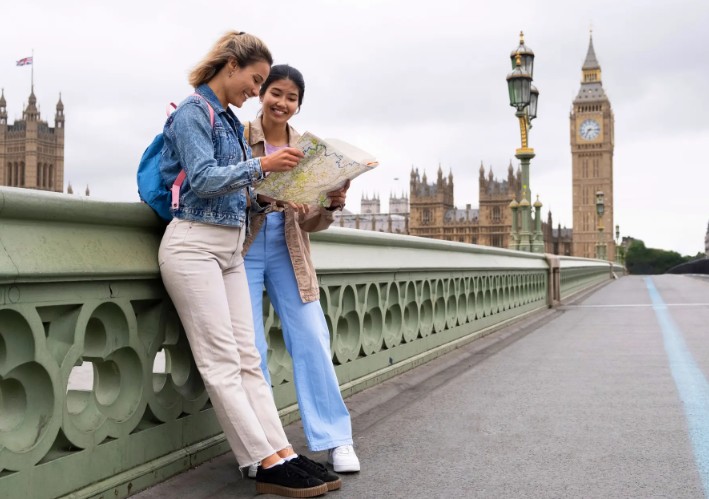
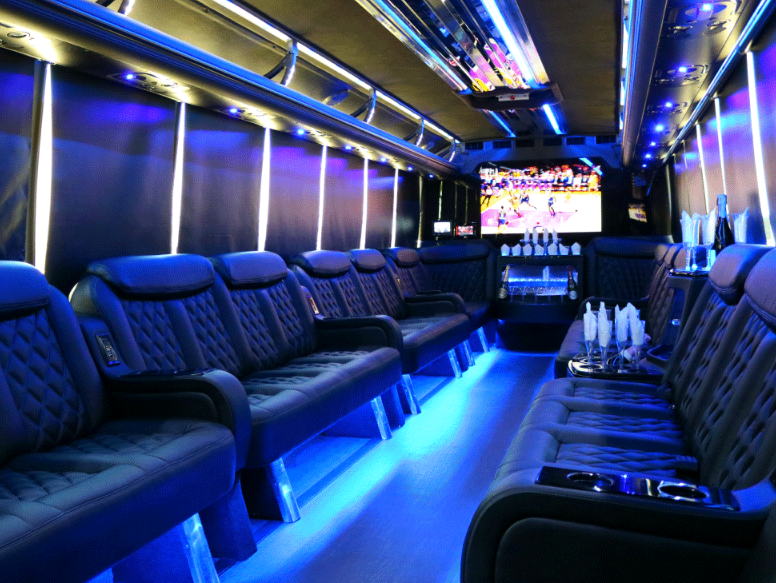
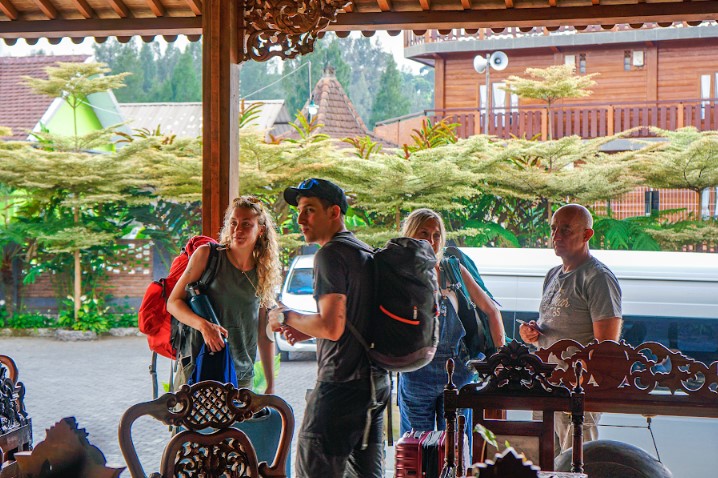
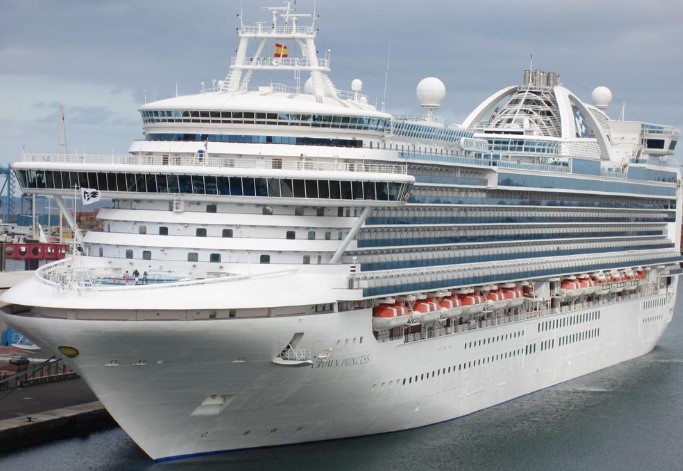
More Stories
Los Angeles Party Bus Rental Service: The Ultimate Guide to Luxury Transportation
U.S. DOJ Sues to Block JetBlue, Spirit Merger
Mexico ‘Do Not Travel’ advisory in effect for US residents ahead of spring break